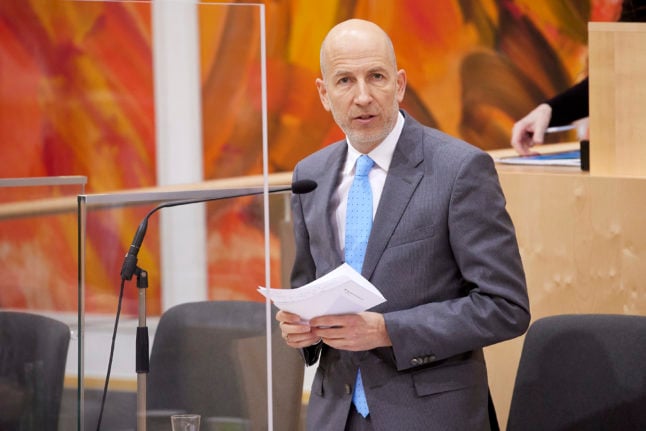Austria’s short-term works scheme, the Kurzarbeit, which was set to expire by the end of June, was officially extended until the end of the year.
The scheme allows companies particularly affected by the coronavirus pandemic to ask for government assistance as long as they keep their workforce. Employees in Kurzarbeit work fewer hours and receive a fraction of their salary, paid by the scheme – up to 90 per cent, depending on their pay.
Discussions are still ongoing between the trade union and the Chamber of Commerce on the details of the short-time work extension, broadcaster ORF reported.
Employers want the government to increase the percentage of the salary paid to workers, asking all employees receive a 90 per cent net replacement for wages. Workers with higher salaries could receive as little as 70 per cent of their wages from the scheme, leading to a significant loss of income.
READ MORE: EXPLAINED: How to get your €500 Kurzarbeit bonus in Austria
Austria’s Labour Minister Martin Kocher said that the extension was only possible after “significant compromises” and that the system will only exist in very specific cases in the future. He didn’t give further details, though.
One of the reasons for the extension, ORF reports, was to cushion the economic consequences of the Ukraine war.
Kurzarbeit and unemployment rates
April 2020 saw the highest number of people, more than one million, on the scheme. Around 53,000 people were still pre-registered for short-time work at the beginning of the week. From March 2020 to the end of March 2022, government spending on coronavirus short-time labour amounted to € 9.56 billion.
READ ALSO: Six official websites to know if you’re planning to work in Austria
At the same time, the domestic labour market has seen a decrease in unemployment, even with the slowdown due to the war in Ukraine and soaring energy prices.
Compared to just one week ago, 4,216 fewer people were unemployed. Currently, 324,977 people are registered with the Public Employment Service Austria (AMS) as unemployed or in training. 251,633 of them are looking for a job, and 73,344 are in training measures of the AMS.



 Please whitelist us to continue reading.
Please whitelist us to continue reading.
Member comments